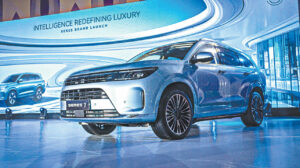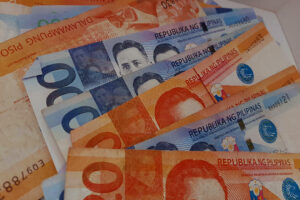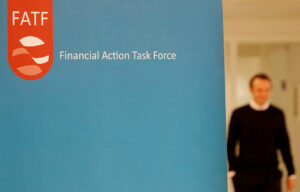I THINK it’s safe to say that we’ve reached an inflection point in our country’s mobility journey as it pertains to the brands we allow into our consideration set.
It’s already a bewildering selection as it is. Japanese, Korean, American, and European marques have long been competing for our attention and budgets. But the influx of so many Chinese brands in recent memory has been unprecedented.
Now, another challenger enters the ring. Formerly known as SF Motors and/or Chongqing Jinkang New Energy Automobile, Seres Automobile is a “new energy” vehicle specialist. The company itself falls under the larger Seres Group (itself formerly called the Chongqing Sokon Industry Group). If you’re not familiar with the term “new energy vehicles,” it’s China’s term for electrified vehicles, and even a cursory glance at the local industry reveals a growing selection of electrified mobility options from our neighbor from the north.
Of course, it is impossible to talk about China without addressing the ever-growing elephant in the room — namely, the contentious relationship of our two countries, especially when viewed through the prism of territory. “Let the customers ultimately decide if they would like to purchase a car from China. We are, after all, an open market economy, and more choices benefit the consumers and increase competition among industry players. Even top players like Toyota needed to dig deep in their product portfolio and introduce models from their Daihatsu line in order to compete with the rise of more affordable options from China,” recently wrote our occasional contributor Chris Yu — an industry veteran who now works for the United Asia Automotive Group, Inc., specifically looking after the Beijing-headquartered BAIC brand as its brand head and general manager.
Mr. Yu raised another valid point: “After World War II, there were many sentiments against both German and Japanese vehicles, because of the two nations’ involvement in the war. This clearly did not last long, as both countries now enjoy a robust automobile manufacturing industry and brands from both countries top the list in desirable automotive marques. Whether or not Chinese brands will share a similar trajectory in the Philippines is completely up to Filipino consumers.”
This is quite a long-winded introduction to my column this week, but I think it’s a needed discourse that cannot be glossed over — particularly since “mischief” between Philippine and Chinese troops in the West Philippine Sea is seemingly escalating. To say that this has no bearing on our choices and biases would be an egregious mistake. A Filipino executive for a Chinese brand here lamented how he believed sales would be a lot better without the intramurals. I agree. At the end of the day, buyers veritably “vote” with their pesos.
While technically debuting at the recent Manila International Auto Show, Seres Auto (here represented by heavy equipment distributor QSJ Motors Philippines, Inc.) did a more focused brand launch in Pasay City recently. It was a more thorough presentation that delved into the company’s roots that traces back all the way to 1986. The “technology-driven car manufacturer” counts itself among the top 500 companies in China and today is an “A-share listed company,” with new energy vehicles comprising its core business. It also is said to employ over 20,000 employees.
In a release, the partners tout the deal as “(marking) a pivotal moment in the Philippine automotive industry. This partnership leverages Seres’ expertise in electric vehicle manufacturing and QSJ Motors’ robust distribution capabilities to introduce a range of intelligent electric vehicles to the Philippines. This move is set to promote sustainable transportation solutions and support the country’s environmental goals.”
Even as a handful of models were unveiled at the brand launch, these were basically teases. We were told by Jona Chiang of QSJ Motors that pricing for the first batch of nameplates — the Seres 7 three-row SUV, Seres 5 EV, Seres SF (Saker Falcon) 5, and Seres 5 — will be available by September this year when these are officially launched. The company would also be ready to talk about dealerships by then, along with specific plans and aspirations for Seres, she promised.
What we could communicate though is that Seres is not playing in the traditional mass- to mid-market price point or even value proposition. Rather, the brand is introducing “intelligent luxury electric vehicles that combine innovation, sustainability, and unparalleled driving experiences.”
Of course, we will hold off judgment until we actually get behind the wheel of one of these models. Seres is saying, however, that many of its promises are anchored on its so-called MF platform that is said to introduce an industry-first “comprehensive safety system… covering over 150 safety scenarios (and boasting) more than 200 safety features (plus) 40 safety technologies.” Seres maintained that “this comprehensive approach significantly elevates the safety standards of the driving experience.”
But perhaps the sexiest value proposition, particularly for new energy vehicle fence-sitters, is range extender technology. Just what is it? “This technology extends the driving range of the electric vehicle by incorporating an additional generator that charges the battery when it runs low, thereby significantly enhancing the overall driving range. With this technology, (the user) gets the convenience of using electric power for city driving while also having the choice of traditional fuel for longer trips. This range extender technology ensures that drivers can travel longer distances without the anxiety of depleting the battery,” Seres reported.
Speaking of anxiety, here’s wishing our spat with our China deescalates soon. Everyone will surely be better served by peace than provocations.
For more information on Seres, e-mail info@seres.com.ph or sales@seres.com.ph. Its official Facebook account is Seres Motor Philippines; its website is www.seres.com.ph.





